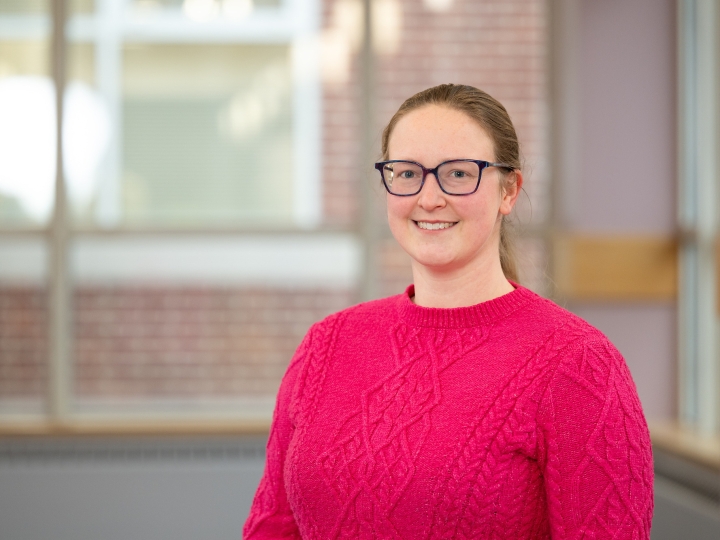
Bucknell, Susquehanna Earn NSF Award for State-of-the-art Mass Spectrometer
March 25, 2021
Bucknell's current Orbitrap mass spectrometer. Photo by Emily Paine, Communications
Faculty members from Bucknell University and Susquehanna University have partnered on a National Science Foundation (NSF) award for the purchase of a new state-of-the-art mass spectrometer that will serve advanced research at all colleges and universities in the surrounding region.
The NSF Major Research Instrumentation grant of $391,544 was awarded to Bucknell Professor Doug Collins, chemistry; and Professor Moria Chambers, biology; as well as Susquehanna Professor Lou Ann Tom, chemistry. The award funded purchase of an Agilent 6560 ion mobility Q-TOF mass spectrometer system, which will be housed at Bucknell but will be available for use by researchers from other primarily undergraduate institutions across central Pennsylvania starting this summer.

Professor Doug Collins, chemistry. Photo by Emily Paine, Communications
"One of the important things we did in this grant proposal is make sure it wasn't just for our use alone," Collins says. "This grant is designed to benefit the central Pennsylvania community. We wanted to provide access for many different researchers who may not normally have the opportunity to use sophisticated equipment like this. We wrote into the grant that other institutions who are primarily undergraduate will have access to this instrument."
The new mass spectrometer system will permit area researchers to uncover structural information that cannot be seen with traditional mass spectrometer systems, like the ones Bucknell's chemistry department currently owns.
"This gives us a very accurate measurement of the mass of the molecules. It allows us to break molecules apart and then use the fragments like puzzle pieces, so we can piece together the way they're connected," Collins says.
The instrument will support a broad array of research programs, including new advances in designed chemical and biochemical systems, environmental and clinical analysis, and molecular studies of infection and chemical signaling.
Initial projects that will be aided by the equipment include Collins' air quality and climate processes research, and Chambers' project to provide a fundamental understanding of biological responses to infection and disease.

Professor Moria Chambers, biology. Photo by Brett Simpson
"We are interested in identifying novel antimicrobial compounds in insects to address the growing antibiotic resistance crisis and this instrument has a powerful ability to separate and characterize new compounds," Chambers says. "In addition, this instrument will enable us to identify key metabolic changes both in the infected animals and in the invading pathogen due to its high sensitivity. This will greatly improve our understanding of the relationship between infection, metabolism and disease."
Tom and her Susquehanna students will use the equipment to analyze how common pharmaceuticals, including opioids, degrade and develop safer means to dispose of them.

Agilent 6560 ion mobility Q-TOF mass spectrometer system. Photo by Agilent
"The instrument will allow for separation and identification of pharmaceutical degradants that could potentially contribute to toxicity if disposed of improperly," Tom says. "This analysis could potentially be applied in a practical way to provide a method for disposal of unused prescription drugs, and could benefit the environment and reduce the opportunity for theft and addiction associated with some of these types of drugs when left unused in households."
The spectrometer will also inform research projects that will increase the speed and effectiveness of opioid overdose diagnosis, and a project on synthetic pathways for microscopic molecules, among others.
The equipment will be installed in Bucknell's Rooke Science Center in May.

